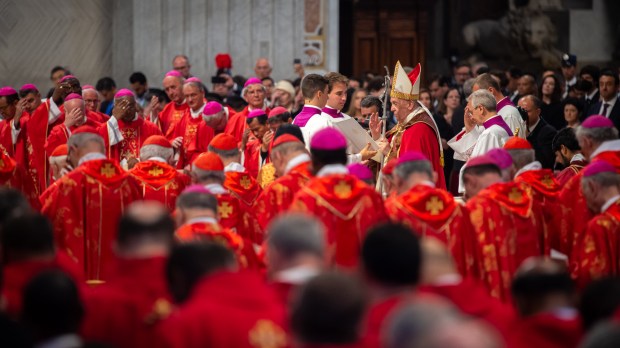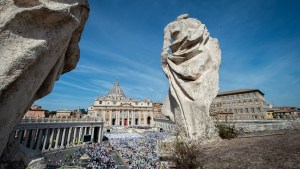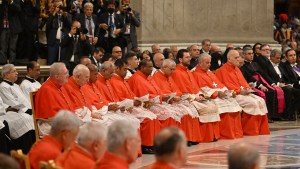Some 200 cardinals were gathered in Rome around Pope Francis for two days of work behind closed doors on August 29-30, 2022. Cardinal Philippe Barbarin, Archbishop Emeritus of Lyon, spoke to us about those unprecedented days.
How did you experience these 48 hours of work with the other cardinals?
Cardinal Barbarin: It was a rare moment, which had not happened for a long time. Almost all the cardinals were there, and we wanted to get to know each other because one day, we know, there will be a conclave. For the previous consistories, Francis did not call us up. I realized that there were about 60 cardinals who I didn’t know. I’m happy because I was able to meet a certain number of them, to see them, and to listen to them, especially during the workshops.
Concretely, how did these working sessions unfold?
Cardinal Barbarin: There were times spent in the assembly and then workshops composed of about a dozen cardinals. We had an hour and a half of discussion to share our joys and difficulties in collaborating with Rome. The reports of the assemblies were a bit quick since the cardinals in charge of reporting had only four minutes to deliver a summary of what had been said.
It was a beautiful work of communion, but not necessarily easy. I’ve been a cardinal for 20 years and this is the first time I’ve seen this effort of adaptation and communion. These are good days.
And then you meet up with good friends that you never see. I was happy to see Cardinal Sako, Patriarch of Baghdad, and Cardinal Marx, with whom I was a student in Paris. We experienced real concrete fraternity during these days.
Was the question of relations between the Curia and the local dioceses raised?
Cardinal Barbarin: There’s an eternal problem of collaboration between the Roman administration and the dioceses. The objective is to make this Roman administration not too heavy or demanding but truly at the service of the local Churches. And this is the first time that there’s a text that lays the foundations for a new spirit of the Curia.
The Constitution Praedicate Evangelium recalls the fundamental mission of the Church, which is to announce the Gospel. Everything must be organized towards this end. The Curia must not be a central administration but a service of evangelization.
Rereading this project together, having it explained to us by those who wrote it, making comments … This was a welcome experience. These working sessions were a good way to receive [the document], to welcome it and to comment on it.
Some cardinals expressed their need for reassurance about the reforms for greater financial transparency in the Vatican. Did you feel this too?
Cardinal Barbarin: Pope Francis entrusted a mission to Cardinal George Pell who really did the job. Now the financial organization is overseen by competent lay men and women appointed by the pope. We have quiet confidence about these matters. We believe that there are competent eyes watching and monitoring.
What we saw at the end of Benedict XVI’s pontificate was saddening. Pope Francis has understood that real reform is needed. Cardinal Pell, a strong man, has led a battle. But finances are always a problem, in the dioceses, too. It’s a battle everywhere. So, is what has been done lately perfect? No. Is there a risk of failure? Obviously. We should not have any illusions. Money is money.
During these four days in Rome, did you feel an atmosphere of “end of reign” regarding Pope Francis?
Cardinal Barbarin: Pope Francis is touching because of his poverty. He suffers. But it was not an atmosphere of end of reign. He was completely present, to people and things. He did not talk to us about his health.
So, this great meeting of the Cardinals was special. We asked ourselves, “Perhaps the conclave isn’t far off.” We couldn’t help but think so, simply because of the pontiff’s age. Francis has already said that this is an open door. But we haven’t discussed this among the Cardinals.



